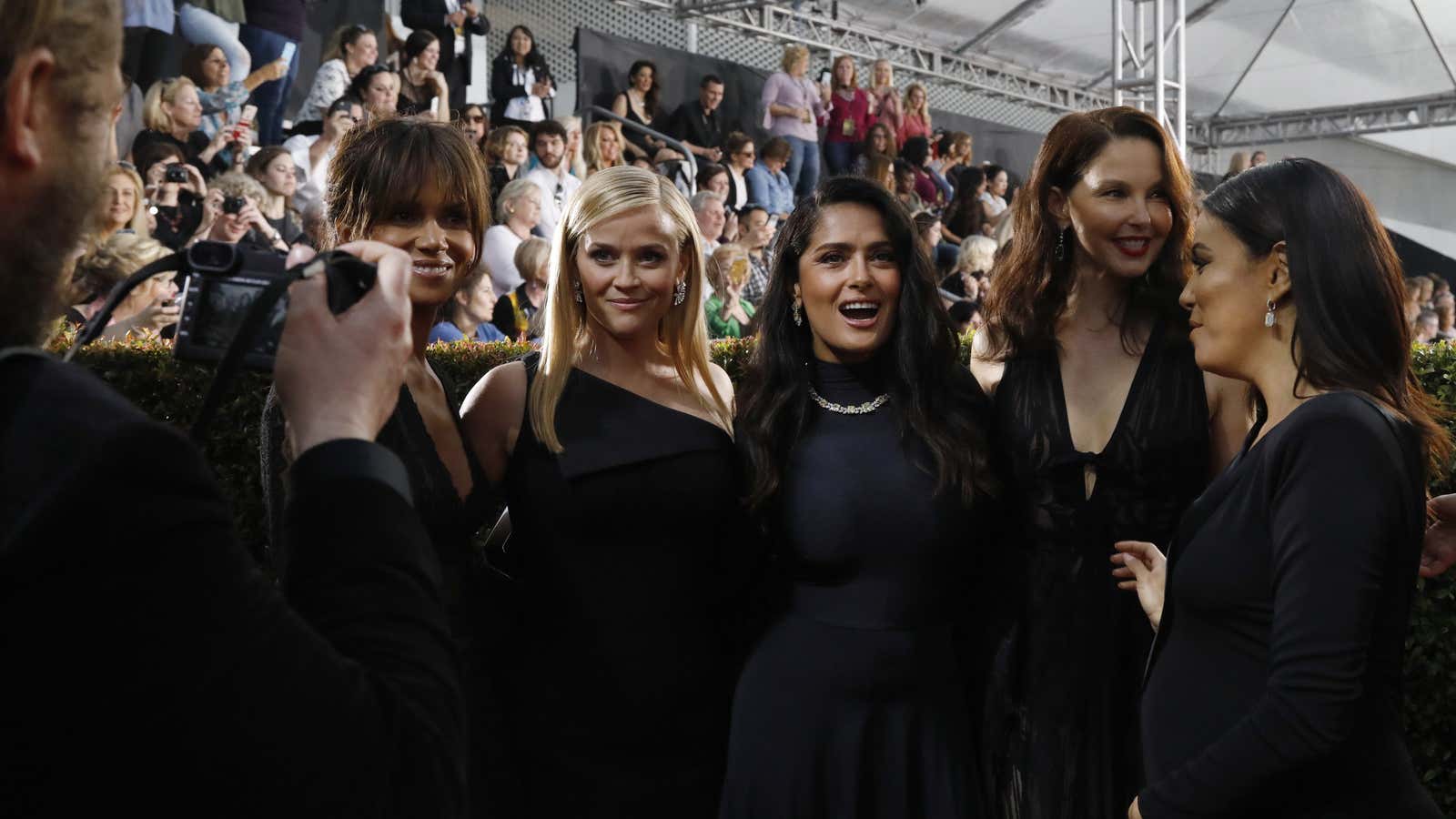When US president Donald Trump delivers his state of the union address on Jan. 30, he may be staring at an audience dotted with women in black, protesting sexism, sexual abuse, and notably, sexual harassment of the kind that he himself has been accused of.
A number of Democratic women in Congress plan to wear black to the president’s big annual speech, NBC News reports. Rep. Jackie Speier (D-Calif.) said there’s strong support for the symbolic protest within the Democratic Women’s Working Group, which includes all the female Democrats in the House, and they are inviting other men and women on both sides of the political aisle to join them. “This is a culture change that is sweeping the country, and Congress is embracing it,” Speier told NBC News.
Their move follows the all-black fashion protest at the Golden Globes, organized by the group Time’s Up, that signaled women’s anger and solidarity in the face of the systemic sexual harassment women in Hollywood and other industries face. The #MeToo movement, originally founded by black activist Tarana Burke, has kept the problem in the public consciousness, particularly since the numerous accusations of sexual harassment and assault, including rape, against movie producer Harvey Weinstein.
But will Republican women join them? They may find themselves in an awkward position. Many, if not all, have likely had to face down the toxic and sexist culture that prompted this push. But representing their party as president is Trump, who serves as a glaring example of that culture. To date, 17 women have accused Trump of sexual misconduct, and a tape of him bragging about kissing and grabbing women without their permission resurfaced during the 2016 campaign. At the time he dismissed the incident as “locker room banter“—and he has remained unscathed even as the public reckoning of #MeToo unfolds.
In the past, sexual assault and harassment is one issue where lawmakers on both sides have both been willing to speak out on, according to Debbie Walsh, director of the Center for American Women and Politics at Rutgers University’s Eagleton Institute of Politics. “We certainly saw it with the issue of sexual harassment in the military, where we saw the Republican and the Democratic women in the Senate coming together,” she says. “Kelly Ayotte [R-New Hamp.] was outspoken, as well as Kirsten Gillibrand [D-New York] and Claire McCaskill [D-Missouri].” (Gillibrand and McCaskill did disagree on exactly how to reform the prosecution process for sexual assaults in the military.)
As the protest during the State of the Union takes shape, “I think we will be watching to see what happens at the speech, and whether this is something that does cut across party lines,” says Walsh.
Nikki Haley, the former Republican governor of South Carolina who Trump appointed as the US ambassador to the United Nations, has said that Trump’s accusers deserve to be heard. During the Golden Globes, even Trump’s daughter Ivanka publicly praised Oprah Winfrey’s speech, which called for an end to the era of “brutally powerful men” and widespread sexual assault and harassment. “Let’s all come together, women & men, & say #TIMESUP!” she tweeted.
But anyone who joins in on a symbolic protest at the State of the Union may look like they’re directly rebuking the president, not just the broader culture. Women in the GOP are under the added pressure of being far outnumbered by men, even more than Democratic women are. Of the 435 members of the House, 62 are Democratic women, and just 22 are Republican women. Being in such a stark minority can make it harder for women to speak up about issues that harm them more than men.
Of course another important question, Walsh notes, is whether the protest in Congress will cut across gender lines, too. Even at the Golden Globes, men at least wore black in solidarity, though they largely failed to speak out on the subject of harassment.
“For things to change, it’s going to take women doing their part, but men also need to talk up,” Walsh says. “So I’ll be curious to see whether there are men, both Democrats and Republicans, who will wear black on that day in support.”
